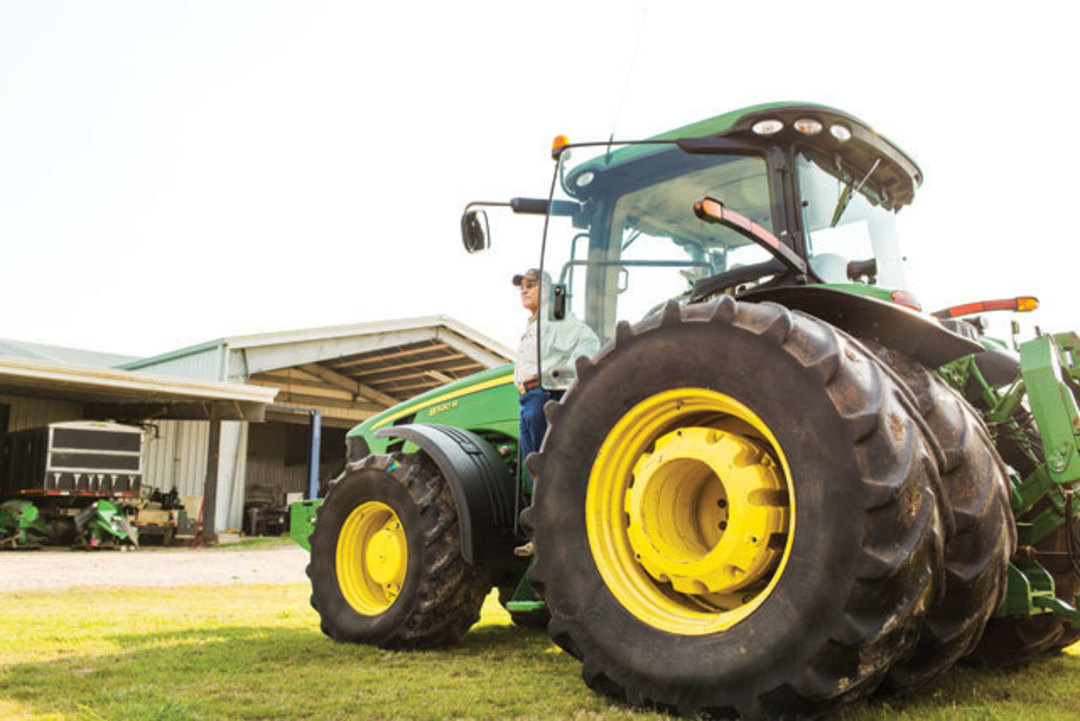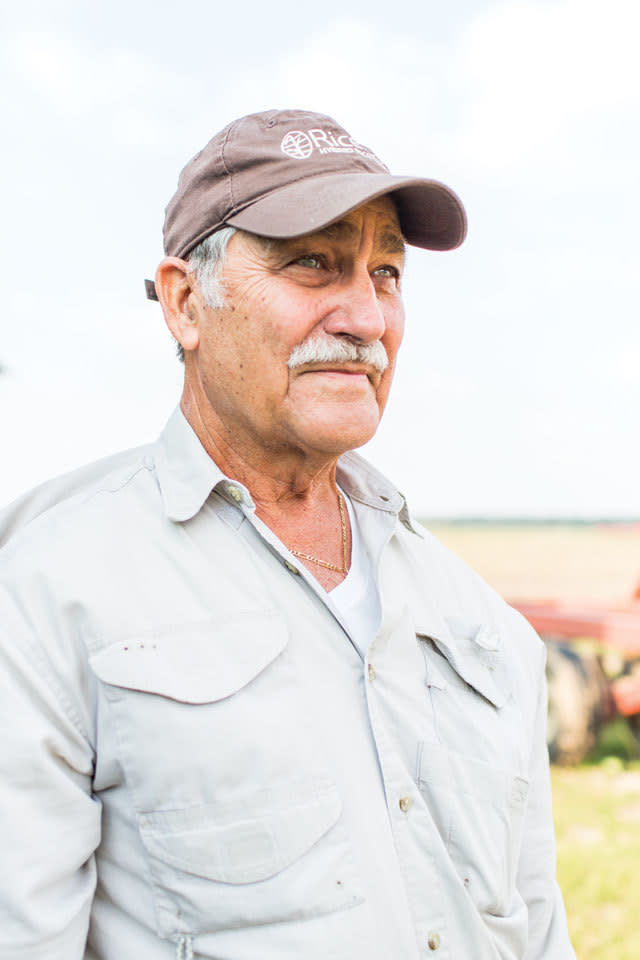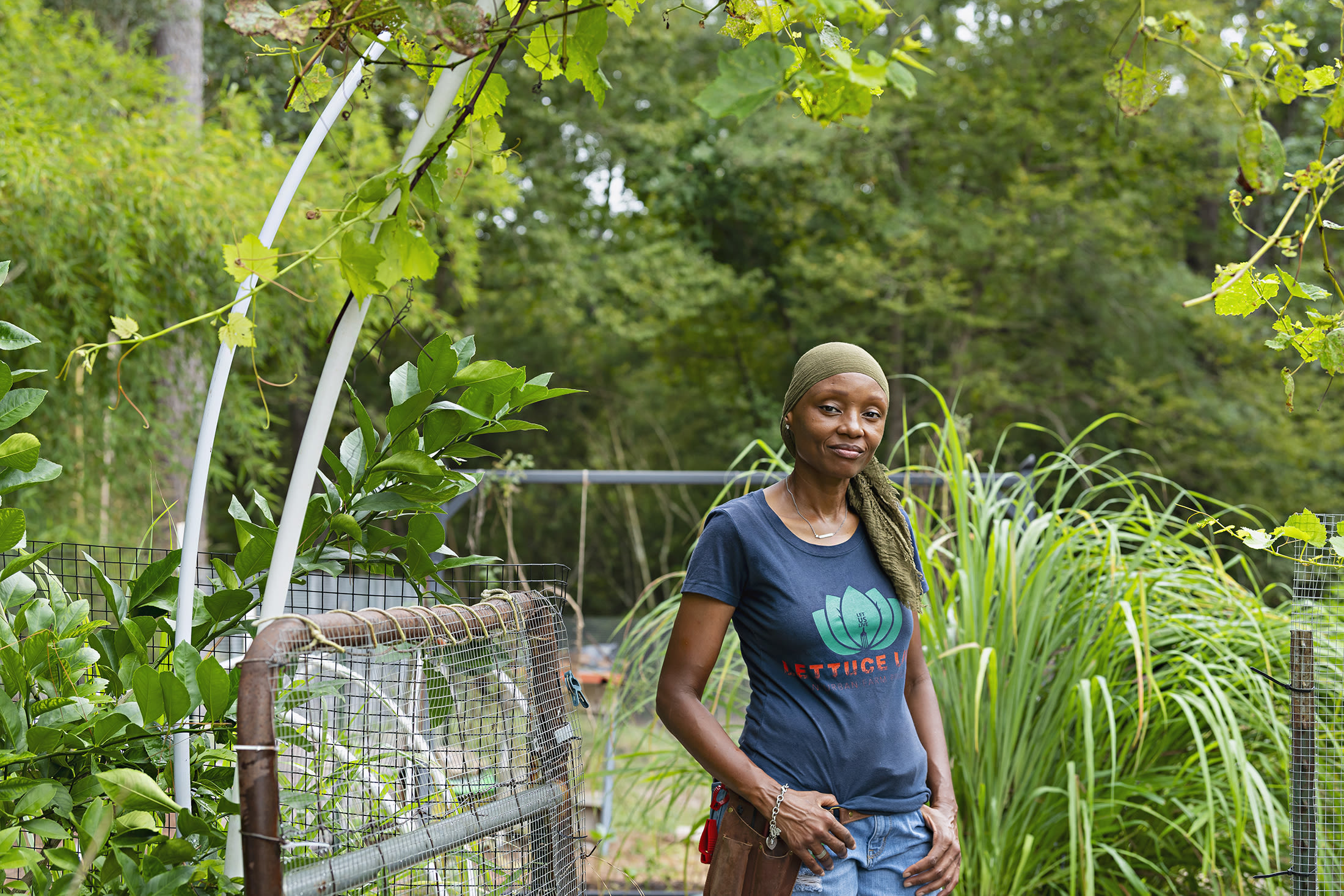How Much Longer Can One Man Feed Millions?

Image: Jill Hunter
Last July, John Travis “Jacko” Garrett was learning how to fly a helicopter when something went terribly wrong. Suddenly, over a pasture, the chopper went down. It exploded, lighting up a couple of acres in the process, although not before he and his instructor had scrambled to safety. When help arrived, Garrett didn’t have much to say, other than that his back was troubling him a bit. It was the kind of quietly extraordinary moment that has typified his life.
Garrett, age 70, is a second-generation rice farmer from Danbury, a tiny farm town of 1,700 southeast of Houston in Brazoria County. He’s a legend there, leading catechism classes for the entirety of his adult life at St. Anthony of Padua Catholic Church. He’s a legend here as well, though an unsung one, thanks to the almost six million pounds of rice Garrett’s donated to the Houston Food Bank, and the millions upon millions of free meals created from that rice. The contributions of his Share the Harvest charity are vital—providing over 11 million servings of rice each year through the Food Bank and its 570 partner charities in 18 counties around Houston.
related: Rising Costs Keeping Younger Farmers Out

Garrett, a second-generation rice farmer from Danbury, has donated over six million pounds of rice to the Houston food bank.
Image: Jill Hunter
“Most of what the Houston Food Bank receives is surplus—donations of products that weren’t going to sell anyway,” explains CEO Brian Greene. “The Share the Harvest rice is different. This is deliberately done for us, and unlike all the other donations, it’s actually a really substantial donation.” Rice farmers don’t have any trouble selling their product—it’s in high demand in both grocery stores and food pantries. “It is a huge donation that isn’t replaceable for us,” says Greene.
But Garrett’s had troubles of his own recently. His wife, Nancy, for whom the term beloved doesn’t begin to describe his feelings, is getting older. His daughter Tracy Garrett LaChance, with whom he once ran Share the Harvest, took a job elsewhere. He’s sold off large acreages of Garrett Farms to keep his head above water. So now, even as he continues to suffer from back pain post-helicopter accident, and tries to spend as much time as possible with his wife, Garrett has to run Share the Harvest by himself. He’s not sure how much longer that will be possible.
It was in 1984 that he first began donating a portion of his rice crop each year to charity. “My father and I decided to send a truckload of rice into the Houston Food Bank that first year,” Garrett says, recounting how he talked Uncle Ben’s into processing the rice for free. Soon, Garrett Farms was shipping thousands of pounds of rice to the Houston Food Bank every year.
In 1999, Garrett founded Share the Harvest to better gather and distribute the rice from both his farm and the other area rice farms he’d talked into donating. And even as other farmers and mills have swung in and out of the equation—Uncle Ben’s shut down its Ship Channel mill and moved to Mississippi in 1998—others have stepped in. Garrett has always found people in his industry willing to help; American Rice Inc. and the Colorado County Rice Mill offered their services for free. Chemical companies and fertilizer manufacturers donated products. Trucking companies donated miles and fuel, as did Garrett’s brother’s aviation company. “All of them in some way have been tremendous supporters of food for charity, for the needy,” he marvels.
Charitable works are part and parcel of Garrett’s strong religious convictions. His business cards are emblazoned with that well-known passage from Galatians—“As a man soweth, so shall he reap”—and when guests visit the farm, he gives them thick books on the Virgin Mary. “You know he walks the walk,” says his office manager, Gina. “He doesn’t just talk the talk. He’s probably given 200 of those books away in the past year.”
“I’m a farmer,” Garrett says, first and foremost. “I’ve gotta make a living.” That’s a challenge these days, both for the industry as a whole and Share the Harvest. Increasing costs have made it incredibly difficult for younger generations to start or take over farms of their own. “A tractor today is $250,000; when I went into business, it was $3,000,” he says.
"As much as Jacko’s concerned, I’m 100 times more concerned. It’s a million pounds of rice per year. It’s become a major part of our supply,” says Brian Greene at the Food Bank. “The reality is it’s the rice farmers; they’re who make this possible. We really need Share the Harvest to be able to keep going.
Garrett worries too about his employees, many of whom have never known another employer. “Cuantos años trabajando aqui?” he asks one middle-aged man repairing a combine. “Diecisiete,” the man smiles back—he has worked there 17 years. Another has been on the farm for 36; still another has worked for Garrett since he was 15. The average tenure of a Garrett Farms employee is 26 years.
Still, he admits to not having the energy or time to run the charity the way he’d like to, lines carving across his deeply tanned face. “I’m tired,” he sighs. “I just don’t hustle like I used to.” He wonders whether a young rice farmer—rare as those are—would consider stepping in to take over Share the Harvest. In the meantime, though, Garrett is working out a plan with the Houston Food Bank to fund Share the Harvest in which the charitably minded would purchase farmland. “If you wanted to buy an acre of rice to provide the funds for Share the Harvest, for about $1,200 you could provide nearly 80,000 meals.”
Even if he doesn’t have the time or the energy to beat on doors asking for donations, Garrett will never give up on rice farming. It’s all he’s wanted to do since he was 12 years old, and it’s all he’s ever known. “I can farm 100 acres of rice just as easy as you can drive to Danbury,” he says.
It’s the road ahead that he’s worried about.




